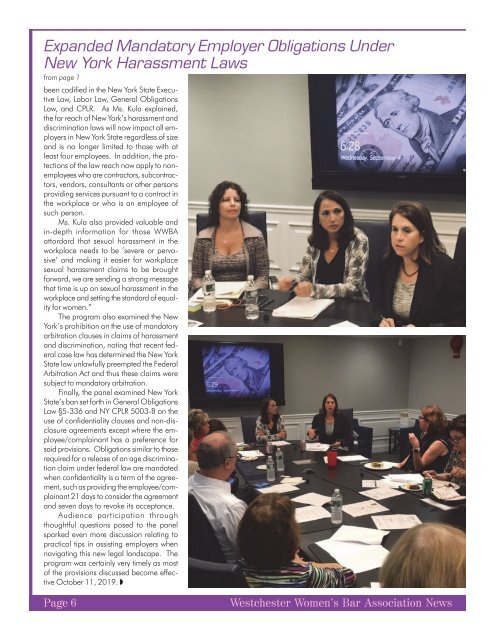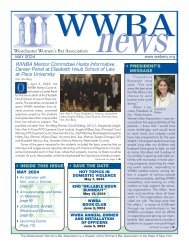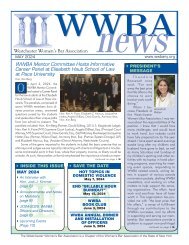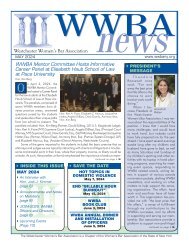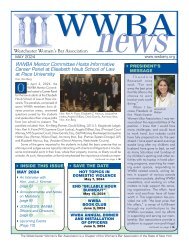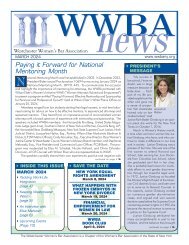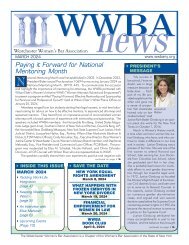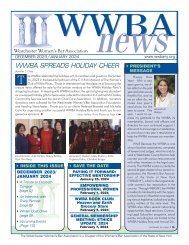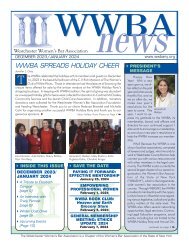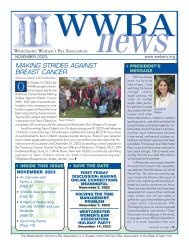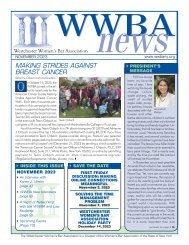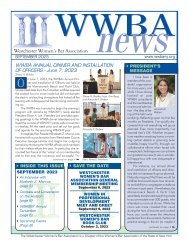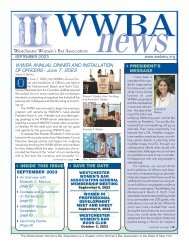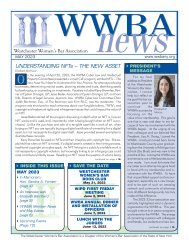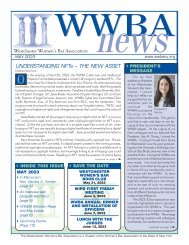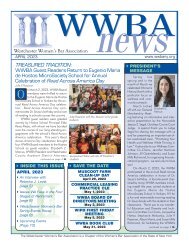WWBA October 2019 Newsletter
Create successful ePaper yourself
Turn your PDF publications into a flip-book with our unique Google optimized e-Paper software.
Expanded Mandatory Employer Obligations Under<br />
New York Harassment Laws<br />
from page 1<br />
been codified in the New York State Executive<br />
Law, Labor Law, General Obligations<br />
Law, and CPLR. As Ms. Kula explained,<br />
the far reach of New York’s harassment and<br />
discrimination laws will now impact all employers<br />
in New York State regardless of size<br />
and is no longer limited to those with at<br />
least four employees. In addition, the protections<br />
of the law reach now apply to nonemployees<br />
who are contractors, subcontractors,<br />
vendors, consultants or other persons<br />
providing services pursuant to a contract in<br />
the workplace or who is an employee of<br />
such person.<br />
Ms. Kula also provided valuable and<br />
in-depth information for those <strong>WWBA</strong><br />
attordard that sexual harassment in the<br />
workplace needs to be ’severe or pervasive’<br />
and making it easier for workplace<br />
sexual harassment claims to be brought<br />
forward, we are sending a strong message<br />
that time is up on sexual harassment in the<br />
workplace and setting the standard of equality<br />
for women.”<br />
The program also examined the New<br />
York’s prohibition on the use of mandatory<br />
arbitration clauses in claims of harassment<br />
and discrimination, noting that recent federal<br />
case law has determined the New York<br />
State law unlawfully preempted the Federal<br />
Arbitration Act and thus these claims were<br />
subject to mandatory arbitration.<br />
Finally, the panel examined New York<br />
State’s ban set forth in General Obligations<br />
Law §5-336 and NY CPLR 5003-B on the<br />
use of confidentiality clauses and non-disclosure<br />
agreements except where the employee/complainant<br />
has a preference for<br />
said provisions. Obligations similar to those<br />
required for a release of an age discrimination<br />
claim under federal law are mandated<br />
when confidentiality is a term of the agreement,<br />
such as providing the employee/complainant<br />
21 days to consider the agreement<br />
and seven days to revoke its acceptance.<br />
Audience participation through<br />
thoughtful questions posed to the panel<br />
sparked even more discussion relating to<br />
practical tips in assisting employers when<br />
navigating this new legal landscape. The<br />
program was certainly very timely as most<br />
of the provisions discussed become effective<br />
<strong>October</strong> 11, <strong>2019</strong>. ◗<br />
Page 6<br />
Westchester Women’s Bar Association News


